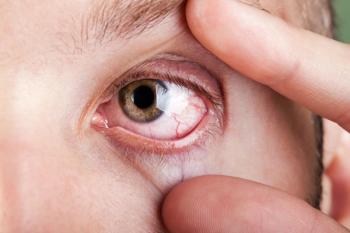
Blue eyes linked to alcoholism
Researchers from the University of Vermont have say that people with blue eyes have a higher chance of becoming alcoholics, according to a study published in the American Journal of Medical Genetics: Neuropsychiatric Genetics (Part B).
Burlington, VT-Researchers from the University of Vermont have say that people with blue eyes have a higher chance of becoming alcoholics,
The researchers found that primarily European Americans with light-colored eyes-including green, grey, and light brown-had a higher incidence of alcohol dependency than people with dark brown eyes. The strongest tendency toward alcohol dependency was found among blue-eyed individuals.
Related:
So, what’s the connection? According to the study, the genetic components that determine eye color line up among the same chromosome as the genes related to excessive alcohol use. But the study’s co-author Dawei Li, PhD, assistant professor of microbiology and molecular genetics, says the researchers still don’t know the reason why eye color is connected to alcohol abuse.
Making the connection
Using the database, Dr. Li and study co-author Arvis Sulovari, a doctoral student in cellular, molecular, and biomedical sciences, filtered out the 1,263 alcohol-dependent individuals with European ancestry. When Sulovari noticed the eye color connection, he and Dr. Li retested their analysis three times, rearranging the groups to compare age, gender, and different ethnic or geographic backgrounds.
Recent news:
Dr. Li wants to delve deeper into the relationship between cultural background and genetic makeup to find the mechanisms of mental illness.
According to Dr. Li, all of the genes identified in the past 20 years can explain only a small percentage of the genetics part that has been suggested, but a lot are missing. He has submitted a grant application to pursue those missing genes and is working on another proposal for funding to continue that pursuit using the large database of patient samples.
Newsletter
Want more insights like this? Subscribe to Optometry Times and get clinical pearls and practice tips delivered straight to your inbox.





